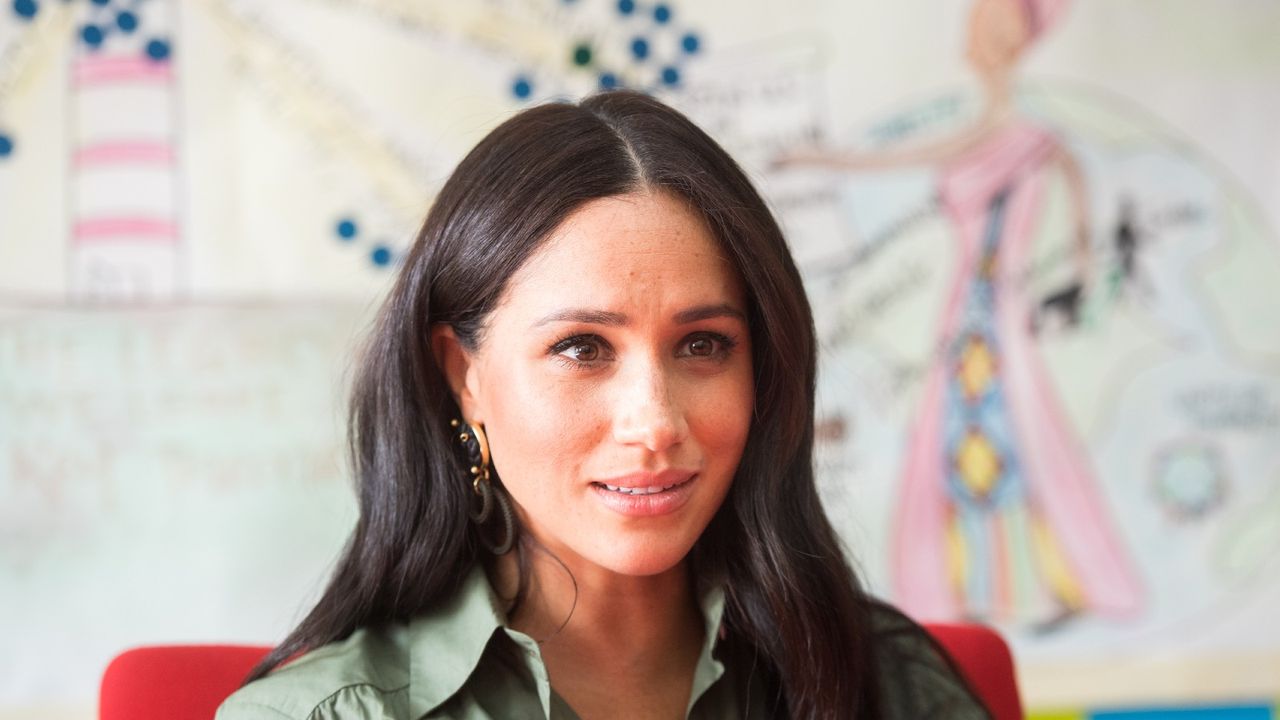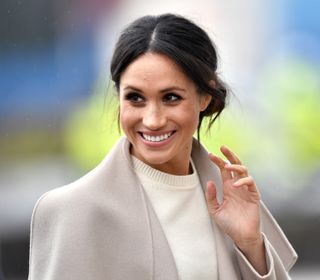Meghan Markle could have ‘early labor’ due to her unique genetic condition, say experts
Meghan Markle has an unusual genetic condition that has been linked to early labour


Meghan Markle could go into early labor because of a unique physical characteristic, according to medical experts.
- Meghan Markle might go into labor early due to her unique physical condition, say medical experts.
- The Duchess of Sussex, who announced she and Prince Harry are expecting a baby girl this summer during their interview with Oprah, is expected to give birth this summer.
- In other royal news, Meghan Markle’s daughter will inherit this luxurious piece of jewelry.
The Duchess of Sussex is preparing to welcome her second child very soon, but could it be even sooner than she thinks?
Meghan and Harry announced that they are expecting a baby girl this summer during their interview with Oprah in March, but chose to refrain from disclosing further details on the family matter—including the due date.
The couple has stayed quiet about the pregnancy since its confirmation, investing their energy in Covid-19 vaccine equity and mental health awareness projects instead. The name of Meghan and Harry's daughter, as well as the delivery date, remains top-secret, with many fans desperate for some info on the beloved royal duo. The curiosity has prompted widespread speculation on Meghan's new arrival and what her name will be, with some folks now wondering if Meghan Markle’s real name could be a clue to what she will call her daughter.
However, as we approach the end of May, it looks like the wait is almost up. Some royal insiders predict we may be hearing baby news sooner rather than later, all because of an unusual anatomical condition.

Meghan Markle's early labor may be caused by her unique physical condition
Meghan "could have an earlier or quicker labor" thanks to a unique physical feature, explained birth coach Alexandra Kremer.
The duchess's fingers are double-jointed, which, surprisingly, makes her a candidate for an early due date. This condition is known as joint hypermobility, or joint laxity, and affects up to 20% of people.
Sign up for the woman&home newsletter
Sign up to our free daily email for the latest royal and entertainment news, interesting opinion, expert advice on styling and beauty trends, and no-nonsense guides to the health and wellness questions you want answered.
"Due to how fragile the connective tissue can be, hypermobility has shown that there can be a connection with early labor," Alexandra Kremer told The Sun.
According to the Hypermobility Syndromes Association, pregnant women who are double-jointed may experience "early dilation of the cervix". This can result in the "premature rupture of the membranes and hence premature labor and delivery".
Alexandra also warned that hypermobility means that pregnancy can take more of a "toll on you and your body" and Meghan may need "extra joint support like a pelvic belt".
Dr. Adam Taylor, an anatomy specialist, agrees that Meghan's double-jointed fingers could indicate the possibility of an earlier—and perhaps quicker—birth.
"The ligaments of the pelvis, which help hold the pelvis together, are believed to loosen over pregnancy," he said. "So any more mobility within these from having hypermobility may help make delivery easier too."
The duchess will likely be in good hands when she does go into labor. Meghan's luxurious maternity hospital choices include high-end clinics and holistic birth centers, meaning she's likely to receive state-of-the-art medical care during the delivery of her second baby.

Hailing from the lovely city of Dublin, Emma mainly covers the Royal Family and the entertainment world, as well as the occasional health and wellness feature. Always up for a good conversation, she has a passion for interviewing everyone from A-list celebrities to the local GP - or just about anyone who will chat to her, really.
Emma holds an MA in International Journalism from City, University of London, and a BA in English Literature from Trinity College Dublin.
-
 Trinny Woodall's reveals her top beauty secret – and it works for everyone
Trinny Woodall's reveals her top beauty secret – and it works for everyone"Our fingers can do so much", says the entrepreneur
By Charlie Elizabeth Culverhouse Published
-
 I'm a beauty hoarder, but these simple tricks helped me streamline my makeup bag to just 6 products
I'm a beauty hoarder, but these simple tricks helped me streamline my makeup bag to just 6 productsHere's how to embrace a 'capsule' approach to your beauty stash - per a fellow (but now, former) makeup and skincare maximalist...
By Victoria Jowett Published